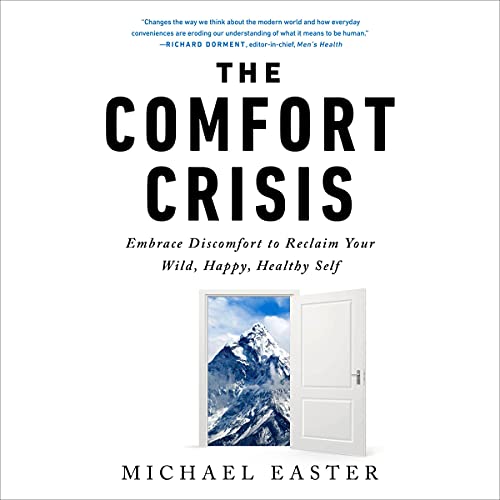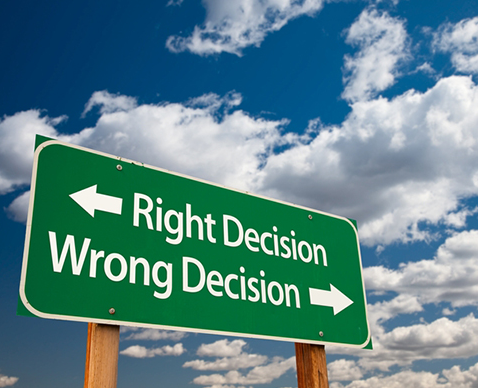Contents [hide]
Embrace Discomfort to Reclaim Your Wild, Happy, Healthy Self
I heard Michael Easter on the Joe Rogan Podcast and thought this book would be right up my alley. It didn’t disappoint. The story centres around the authors gruelling 33 day hunting trip in Alaska, all the discomforts he encounters along the way, and how the experience made him happier and more appreciative.
I really enjoyed it and got a lot out of my. I highly recommend it as it is laid out well with lots evidence backing the claims. These are my distilled notes.
Comfort
Humans have only been comfortable for around 100 years. Before that we had to use our bodies to find food, shelter and water, and we had to use our minds or other tribe members to entertain ourselves when bored. We had to get creative.
People are overweight and soft because we no longer have real challenges in our lives.
People had simpler needs that were easier to fulfil and were more able to live in the present.
Problem Creep: As we experience fewer problems, our problems don’t go away. Our threshold for what is a problem just lowers.
Comfort creep: When a new comfort is introduced we adapt to it and our old comforts become unacceptable. Today’s comfort is tomorrow’s discomfort. This leads to a new level of what is considered comfortable.
We are no longer challenged or pushed to our limits. We are pushed to our limits, we learn something about our potential. This is how humans evolved. Today, there is no reason to be challenged as everything is comfortable.
MISOGI
this is a challenge you take where there is a good chance of failing you push through you will learn something about yourself. They recommend you do a “misogi” once per year. The Misogi is not for posting on Facebook, it is inward facing.
The guidelines are:
- It must be really hard. You should only have a 50% chance of completing it without quitting.
- Don’t die
Being close to failure is good. It pushes us to our limits. Our bodies don’t want us to fail. In the past if we failed we would probably die, now it’s just embarrassing.
Nature
Studies show that people living in cities have higher rates of anxiety and depression than people living in the country. Even though they earn more money and city living is more convenient and comfortable.
Why are we happier in the country? More space? Nature? Slower pace? Fewer people?
We have become detached from the things that make us feel happy and alive, like connection, being in nature, effort and perseverance.
“Shinrin-yoki”: Forest Bathing
This is sitting or walking in the woods taking in nature. Japanese studies have found that 15 minutes of this reduces blood pressure, stress hormones, anxiety and depression.
A study in 2016 found that a 20 minute stroll in a city park can cause changes in neurological structure of our brains, leaving us feeling calmer, sharper, more productive and creative.
The 3 day effect is spending 3 days in wild back country. This has enormous positive effects on your body and mind. It takes 3 days for the process to work. They recommend doing this once per year.
Tribe
They say 150 people is the ideal amount to have in your tribe. Any bigger than this and it gets complicated with social and political issues.
Gore-Tex split their offices into groups of 150 people and they credit this for their success.
Solitude
Studies show that most people would rather get a mild electric shock than spend time alone.
We should get used to being in solitude. It can enhance creativity, empathy and decrease self-consciousness.
Getting Bored
Studies show that the average American touches their phone over 2000 times a day. They spend almost 3 hours looking at the small screen. We never allow ourselves to get bored or go into “unfocused” mode. This is where our creativity and problem solving happens.
Every time we look at our phones we are putting our minds in “focused” mode. We are consuming and processing what we see. This is like lifting weights for our brains. But we never give it time in the unfocused mode to let it recover.
Research shows that the onslaught of screen based media has created people who are increasingly picky, impatient, distracted and demanding.
When we get bored we no longer have to find a creative/productive outlet. We just look at our phones. We consume instead of producing. EG: in the past people would play music, draw, paint or write when they were bored.
Noise
Most sleep problems are caused by too much noise and inadequate darkness. We are surrounded by too much noise these days. Our brains are wired to think “Loud = Danger”. We react by releasing adrenaline, stress hormones that kick us into fight or flight responses. Today, the noises are constant so it is like a slow drip of stress hormones.
Hearing the natural sounds we evolved in seems to strike a calming note within us (which brings us back to why we should spend more time in nature).
Reward VS Real Hunger
Real hunger: the body requires food to function. It fills a physiological need. Its like having an empty gas tank.
Reward hunger: this pops up when we are stressed, celebrating or there are appetising foods around. Reward hunger played an integral part of evolution by compelling us to eat past fullness. This is stored as fat and used when we had to go without food.
Physical Activity
Doing hard physical things calluses the mind and makes everything else easier.
Doing a range of physical activities (crawling, squatting, hanging , carrying etc..) regularly seems to be the what’s best for back pain. Not sitting all day then doing a one hour workout at the gym.
Bhutan: The Happy Country
Despite being ranked 134 on the list of developed countries , Bhutan is ranked among the top 20 happiest countries.
In 1972 the King decided to improve qualities that improve happiness instead of economy.
Why are they so happy?
- They have deep community connections. They live in small communities of less than 200
- They have a deep connection to the landscape. Most live in the countryside and even though they may not have the best luxury houses, they have beautiful views of nature
- They regard access to nature as fundamental. It can change your perspective
- They have less debt. The sense of freedom from no debt is significant
- They don’t chase a checklist like most westerners, EG: get a job, get a car, get a house, get a better car, get a bigger house etc…
Mitkapa
This means impermanence. The Bhutan think about death a lot. This makes them realise that nothing is permanent. If you don’t think this way you can start to think “Things will be better when I do X”.
When you understand nothing is permanent you cannot help but follow a happier path.
Researchers have found that thinking about death enhances gratitude.

